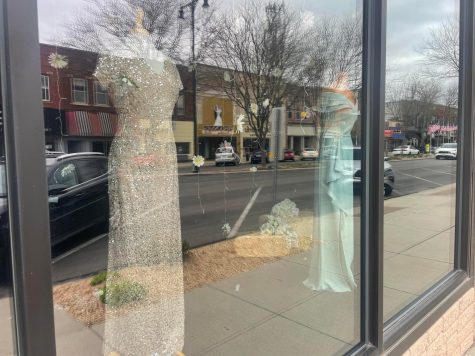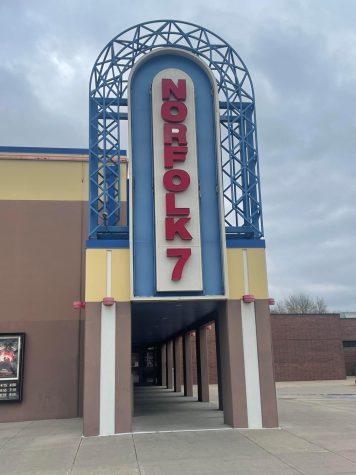With Critic-Driven Film Festivals In Spotlight, Let’s Pause To Focus On Big Picture
April 23, 2015
Should film critics run their own film festivals? I’m conflicted on this one. The practicalities feel a little gummy, a little sticky, but many say the results are worth it.
It’s the right time to ask the question, whichever side of the rapidly deteriorating fence you’re on.
Two separate critic-driven festivals are on Chicago’s radar at the moment. Continuing through Sunday, the pocket-size Champaign, Ill., charmer of a film festival known as Ebertfest was founded in 1999 by longtime Chicago Sun-Times and “At the Movies” marquee critic Roger Ebert.
He started it because he could. He had his alma mater, the University of Illinois, behind the venture. He had the reverence and the contacts of various distributors. His primary employers had no problem with allowing Ebert to establish what was originally called the Overlooked Film Festival.
Ebert died in 2013, and his widow, Chaz Ebert, and her longtime Ebertfest partner, programming director Nate Kohn, have taken the reins. Hundreds of Chicagoans make the trip every year.
A mixture of yet-to-be-released indies and foreign films, older titles and classics, Ebertfest often showcases a hot Sundance Film Festival title or two. On Thursday, it was the David Foster Wallace biopic “The End of the Tour,” directed by James Ponsoldt and starring Jason Segel, both of whom traveled to Champaign to introduce the picture.
That same film, due for a commercial release later this year, pops up on the slate of another critic-driven fest: the third annual Chicago Critics Film Festival, to take place May 1-7 at the Music Box Theatre. That one’s 22 films in all; Ebertfest comprises a dozen.
Brian Tallerico is a member the Chicago Film Critics Association. (For the record, I am not.) As managing editor of the film website RogerEbert.com, he’s busy this week at Ebertfest. He’s also one of the programmers of the upcoming Chicago critics festival.
Ebertfest, he says, has “a family vibe we tried to copy to some extent. I hate to say it, but at the bigger festivals, Sundance or Toronto, it sometimes seems like getting national attention and making money is more important.”
Tallerico’s fellow Chicago festival programmer, Erik Childress, believes this third iteration of the critics festival marks “the first year where it really came together. We got almost everything we wanted; the number of studios (and distributors) working with us has increased.” They understand, he says, “what we’re trying to do for their films.”
Childress isn’t implying we’re all on the same team. The hat-switching relationships required by festival programming, however, are not to every critic’s taste or comfort level.
Washington Post film critic Ann Hornaday doesn’t belong to the D.C. film critics circle, and says she “wouldn’t want to be put in the position of negotiating with people I’m covering. That gives me pause.”
Tallerico sees her point, calling it “a perfectly valid way to go. I get it. I don’t agree with it, but I get it. The first two years (of the Chicago Critics Film Festival), I didn’t want to do any Q-and-A’s with anyone; I wanted to be behind the scenes, like a producer more than a personality.” Now, though, he’s feeling freer to mix it up with the filmmakers flying in to take part in the festival in early May.
There is plenty of precedent for this endeavor. Many high-profile film critics, among them Scott Foundas of Variety, have happily worked both sides of every fence, programming for Lincoln Center’s film society one year, covering the waterfront for Variety the next.
Major overseas festivals from Cannes to Venice feature a critics sidebar competition; this year, one of the biggest on the map, the Berlin film festival, launched an adjunct Critics’ Week roster, concurrent with the main festival.
Three authors of a 2014 manifesto acted as selection committee members for the Berlin Critics’ Week roster. In part, the manifesto read: “Criticism needs to overcome its passive pragmatism and reclaim an activist practice.”
There’s a reason many traditional film festivals have enlisted the services of current or ex-critics.
Programmers and critics speak a common language, even if their customary roles are often oppositional. What used to be defined as “getting in bed” with the people you’re covering is now simply taking place in a bigger bed. The rules and notions of conflicts of interest are changing.
The farmer and the cowman can be friends. Can’t they?
Michael Barker, co-founder of the multiple-Oscar-winning distribution company Sony Pictures Classics, was a friend of Ebert.
Each year Barker returns to Ebertfest to pay tribute and to present one of his company’s films under the festival’s banner.
He admires the hybrid model of critic, the critic who also works or has worked as a festival programmer. It certainly worked for Roger, Barker told me in 2012.
“It’s the new style of how to run a festival. The changes feel fresh. And the public’s paying attention.”
———
©2015 Chicago Tribune
Visit the Chicago Tribune at www.chicagotribune.com
Distributed by Tribune Content Agency, LLC
















